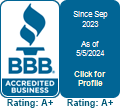Water softening can often increase sodium levels. While most soft water is safe to drink, high sodium levels might not benefit people with high blood pressure. Even those with health issues can find ways to make softened water drinkable. This article will show you how and give you more control over what type of water you drink.
How to Create Soft Water
Compounds like calcium or magnesium in soap cause water hardness. This causes scale to form on pipes and increases lather production. Water softeners remove minerals from water through an ion exchange process using polystyrene beads that are charged with sodium-chloride ions when exposed to hard water. Doing this removes minerals from the solution.
The hardness of water is an indicator of its safety. Water must be extremely hard to indicate that most calcium and magnesium have been replaced with sodium, according to the Water Quality Association. Water hardness can be measured in grains per gallon (g/g) or parts per million (ppm).
How to Test Water Hardness Levels at Home
To test your water’s hardness level, you will need a water hardness testing kit, which you can buy online or at a hardware store. Follow the instructions included in the kit to collect a water sample and perform the test. Hardness levels are typically measured in grains per gallon (g/g) or parts per million (ppm). If your water’s hardness level exceeds 400 ppm, you may need to use a reverse osmosis filter to remove excess sodium.
Is It Safe To Drink Softened Water?
Though most softened water is safe to drink, the source’s original hardness should be considered, as this will affect sodium concentration. Water with less than 400 ppm calcium concentration is safe; if it exceeds 400 ppm calcium concentration, you must purify further, which will decrease sodium in your soft drink.

Does Soft Water Contain Sodium?
No, sodium in softened water is not negligible. A slice of bread has the same sodium content as one gallon of soft water. If your water has high hardness levels, the sodium content can be higher; you can check with the U.S. Geological Survey to see if yours is particularly hard.
Water with 400ppm calcium would be considered “very hard.” On the water hardness scale, “very hard” is defined as a concentration of 180 or more minerals per cubic meter of solution. Unfortunately, such high mineral contents are rare in natural drinking water sources.
Possible Side Effects of Softened Water
Softened water has the potential to have many adverse effects to drink.
Soft water can raise your blood pressure due to its slightly higher sodium content. Therefore, softened water should not be consumed if you have high blood pressure as too much sodium could damage the kidneys, eyes, and heart in those with this condition. Furthermore, softened water may lead to other issues for those with high blood pressure.
It is essential to know the hardness of your water before softening if you are concerned about sodium levels. Soft water should not exceed 400 ppm, as that will add excessive salt back into the mix after softening, so it may be best to steer clear from drinking it altogether.
How to Make Soft Water Drinkable
Reverse-osmosis systems are the ideal way to soften hard water. This water purification technology uses a semipermeable membrane that filters out salt and large particles from the liquid, leaving you with healthy, sodium-free, chemical-free, great-tasting, and clean water.
Other filters cannot make soft water drinkable since they do not remove certain minerals or sodium.

Different Water Filter Types
There are several types of water filters available to make soft water drinkable. Reverse osmosis filters are popular due to their ability to remove sodium and other minerals from water. However, they can be expensive and require regular maintenance. Other options include carbon filters, which are effective at removing chlorine and other chemicals but may be less effective at removing minerals. Ceramic filters are another option, but they are generally less effective than different types of filters and may require more frequent replacement.
Cost of Different Water Softening and Filtration Options
Water softening and filtration options can vary widely in cost. You can purchase water softening systems for a few hundred dollars, while more advanced techniques may cost several thousand. Reverse osmosis filters can also be expensive, with some models costing over $1,000. Considering the upfront cost and ongoing maintenance requirements is essential when choosing a water softening or filtration system.
Enjoy Safe Water
You can drink softened water, but it’s essential to check its hardness first. Softened water should have a hardness below 400ppm; if it exceeds that threshold, then you may need a reverse-osmosis filter to remove sodium. Clog Kings offers more information regarding water softeners, whole-house filtration systems, and reverse osmosis filter options.
Schedule an Appointment
Do you want to avoid dealing with hard water problems in your home? Look no further than Clog Kings for expert water softener installation services! Our experienced professionals will assess your needs and recommend the best water softener system to fit your requirements.
Say goodbye to the frustration of dealing with hard water stains and buildup on your fixtures, appliances, and dishes. With a water softener installed by Clog Kings, you’ll enjoy cleaner, softer, and better-tasting water throughout your home. Contact Clog Kings today to schedule your water softener installation
Our Other Services
Clog King’s plumbers strive to provide great customer service from start to finish. Our services include:


